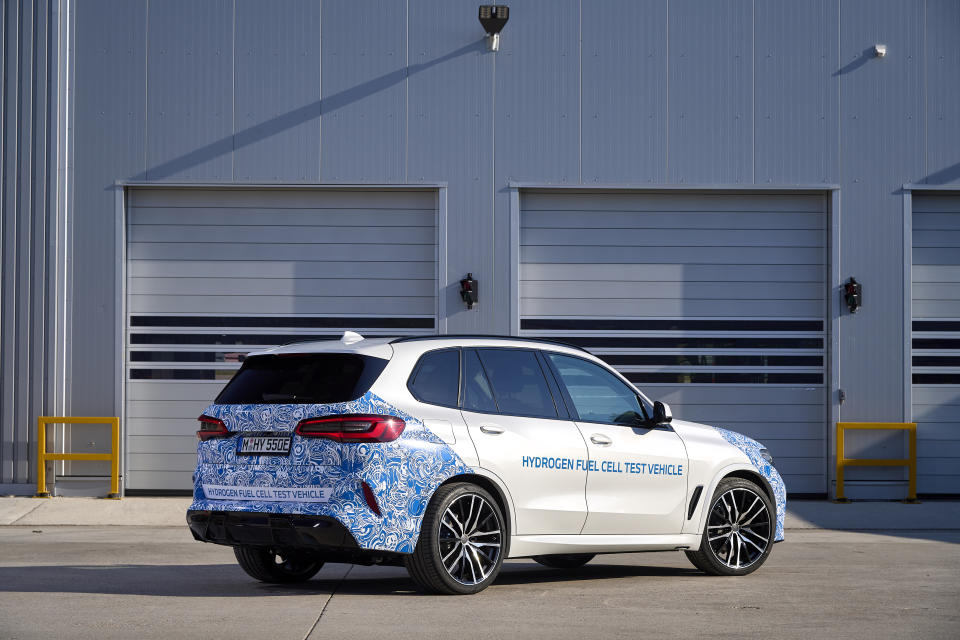BMW commences testing of hydrogen vehicles on European roads
BMW has started on-road testing of its hydrogen-powered prototype vehicles.
Called the BMW i Hydrogen NEXT, the car will be put through its paces to see how it copes with real-life conditions prior to a ‘small series’ model arriving later next year. This will likely mean that the cars will be offered to companies to test out the technology rather than going on general sale.
Based on the firm’s X5 SUV, the i Hydrogen NEXT’s tank can be filled within three to four minutes ‘with a fuel that ensures a range of several hundred kilometres in all weather conditions’.

Frank Weber, member of the board of management of BMW AG responsible for development, said: “Hydrogen fuel cell technology can be an attractive option for sustainable drive trains – especially in larger vehicle classes.
“That is why road testing of near-standard vehicles with a hydrogen fuel cell drivetrain is an important milestone in our research and development efforts.”
The powertrain is developed in partnership with Toyota. The Japanese firm supplies the individual fuel cells, while the fuel cell stack and complete drive system are original BMW parts.
One step closer. We're beginning road testing of the hydrogen fuel-cell powered #BMWi #HydrogenNEXT, focusing on efficiency, safety, comfort, reliability – and the trademark BMW driving pleasure.
Read more: https://t.co/gChwpITi63#BMWGroup pic.twitter.com/FFKPH7HKBK
— BMW Group (@BMWGroup) June 16, 2021
It also uses BMW’s fifth-generation electric eDrive technology which is fitted to the latest iX3 and will also feature in the upcoming BMW iX and i4 EVs. Energy is created through chemical reaction between hydrogen carried in the car’s tank and air, which is then pushed through an electric converter to power the car.
Energy is also stored in a ‘buffer’ battery and this can then be used for short bursts of speed, such as when overtaking. With 369bhp, the hydrogen setup brings the same amount of power that you’d expect from one of BMW’s six-cylinder petrol engines.
The hydrogen itself is stored in two 700-bar tank made from carbon-fibre reinforced plastic which, combined, hold six kilograms of hydrogen. The only emission produced by the setup is a small amount of water vapour.

 Yahoo Finance
Yahoo Finance 